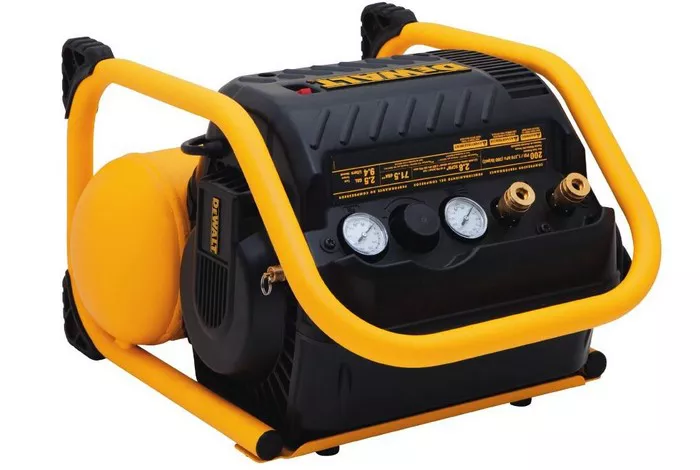When it comes to choosing an air compressor, noise level is a critical factor for many users. Whether you’re working in a home garage, a professional workshop, or an indoor environment, a quiet air compressor ensures comfort, prevents hearing damage, and allows for conversations without shouting. In this article, we explore the quietest air compressors on the market, breaking down their specifications, performance, and suitability for various needs.
Why Noise Level Matters in Air Compressors
Noise, measured in decibels (dB), plays a significant role in determining how user-friendly an air compressor is. Prolonged exposure to high noise levels can cause hearing damage, increase stress, and reduce productivity. Compressors emitting over 85 dB are considered harmful for long-term exposure. Thus, the goal is to find compressors that perform efficiently while staying under 70 dB.
How to Measure and Compare Noise Levels
Before diving into the top models, it’s essential to understand how noise is measured:
Decibels (dB): The unit used to express the intensity of sound. A 10 dB increase represents a tenfold increase in noise. For instance, a 70 dB compressor is twice as loud as a 60 dB model.
Environmental Context: Background noise in a typical office is around 60 dB, while normal conversation is around 50-60 dB. Comparatively, traditional air compressors often reach 90 dB or higher.
Key Features to Look for in a Quiet Air Compressor
Noise Level: Aim for models rated at 60 dB or lower for quieter operation.
Motor Efficiency: Lower RPM motors tend to generate less noise and extend the compressor’s life.
Oil-Free Pumps: These pumps often produce less noise and require less maintenance.
Size and Portability: Consider compact designs if you’re working in tight or indoor spaces.
The Quietest Air Compressors of 2024
California Air Tools 8010 Ultra Quiet & Oil-Free Air Compressor
Noise Level: 60 dB
Specifications:
- Tank Size: 8 gallons
- Max Pressure: 120 PSI
- Motor: 1.0 HP running, 2.0 HP peak
- Pump Type: Oil-free
Overview: California Air Tools has established itself as a leader in producing quiet air compressors, and the 8010 model is no exception. This compressor operates at an impressive 60 dB, making it quieter than a normal conversation. Its oil-free pump ensures minimal maintenance and efficient performance.
Pros:
- Ultra-quiet operation
- Quick recovery time
- Low maintenance
Cons:
- Larger than smaller portable models
- Slightly higher price compared to conventional compressors
Ideal For: DIY enthusiasts, small workshops, and home garages.
Makita MAC210Q Quiet Series 1 HP, 2-Gallon Air Compressor
Noise Level: 60 dB
Specifications:
- Tank Size: 2 gallons
- Max Pressure: 135 PSI
- Motor: 1 HP
- Pump Type: Oil-free
Overview: The Makita MAC210Q is designed for quieter operation without sacrificing power. This model’s low noise level of 60 dB and compact design make it a strong contender for indoor use and portability.
Pros:
- Compact and lightweight
- Reliable and durable build
- Faster recovery time compared to larger units
Cons:
- Smaller tank size may not be ideal for continuous, high-demand tasks
- Higher cost per gallon of capacity
Ideal For: Professionals needing a portable, quiet solution for quick tasks like trim work or inflation.
DEWALT D55140 1-Gallon Trim Compressor
Noise Level: 69 dB
Specifications:
- Tank Size: 1 gallon
- Max Pressure: 135 PSI
- Motor: 0.3 HP
- Pump Type: Oil-free
Overview: The DEWALT D55140 is a popular choice for those who need a super-compact and lightweight compressor. While it’s slightly noisier than the California Air Tools and Makita models, its 69 dB noise level is still well within a comfortable range for indoor use.
Pros:
- Ultra-portable and compact
- Quick startup time
- Durable construction
Cons:
- Limited to smaller tasks due to its 1-gallon tank
- Not suited for demanding pneumatic tools
Ideal For: Light-duty work like nailing, stapling, and inflating.
Key Considerations When Choosing the Right Quiet Compressor
Intended Use
Understanding your primary use will help you determine the right balance between noise, power, and tank size. For occasional tasks like tire inflation and brad nailing, a small, portable model suffices. For heavier tasks like spray painting or using pneumatic wrenches, opt for a larger capacity and more powerful motor.
Quiet air compressors often come at a premium due to their advanced noise-dampening technology. Establish a budget that considers both your current and future needs. While California Air Tools models may be pricier, their value is reflected in reduced noise and maintenance.
Portability and Space
If space is an issue, smaller compressors like the DEWALT D55140 or the Makita MAC210Q are great options. Ensure that the model you choose fits your workspace comfortably and can be easily moved when necessary.
Maintenance Tips for Long-Term Quiet Operation
Keeping an air compressor quiet involves proper maintenance:
Keep it clean: Dust and debris can cause the motor to work harder, increasing noise.
Monitor and replace worn parts: Regularly check seals, valves, and other components.
Oil-free pumps: Though these reduce maintenance, ensure they’re free of obstructions and run smoothly.
Comparison Table of Top Quiet Air Compressors
| Model | Noise Level (dB) | Tank Size | Max Pressure (PSI) | Ideal For |
|---|---|---|---|---|
| California Air Tools 8010 | 60 | 8 gallons | 120 | Workshops, Home Garages |
| Makita MAC210Q | 60 | 2 gallons | 135 | Trim Work, Portability |
| DEWALT D55140 | 69 | 1 gallon | 135 | Light-Duty, Portability |
Conclusion
Choosing the quietest air compressor requires careful consideration of your specific needs, from noise tolerance to portability and power requirements. The California Air Tools 8010 is an excellent all-around performer, ideal for most home and workshop settings due to its ultra-quiet operation and reliable build. For those needing a compact, highly portable solution, the Makita MAC210Q and DEWALT D55140 offer outstanding options with low noise levels suitable for smaller tasks. Always balance your budget, intended use, and desired features to ensure you pick the best air compressor that meets your needs.
Related topics:

